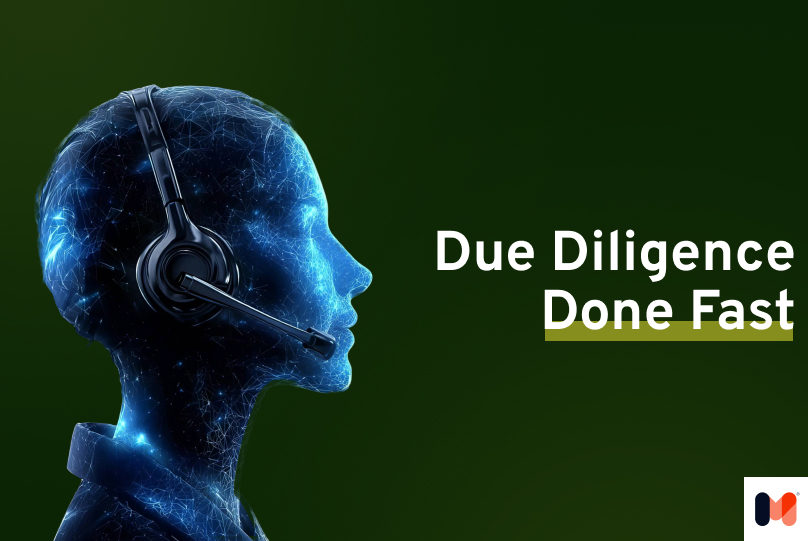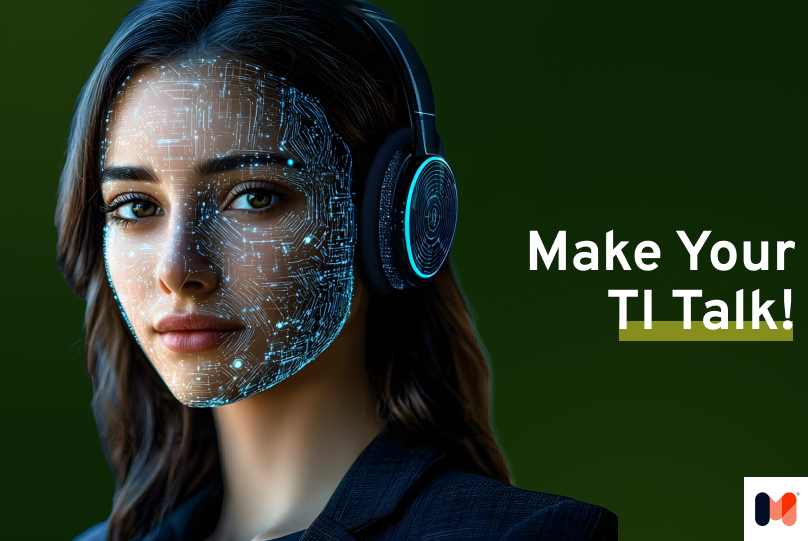Introduction
Imagine a world where verifying a potential hire's credentials takes seconds, where employees' records are immutably secure, and the payroll department process is error-free. Sounds like science fiction? Think again. Blockchain technology, the cryptographic backbone of cryptocurrencies, is poised to revolutionize all aspects of Human Resources (HR) technology.
Have you ever wondered how the same technology that powers Bitcoin could transform HR processes, making them more efficient, secure, and transparent?
Overview of the HR Blockchain Industry Shape
At its core, blockchain technology is a decentralized ledger securely recording transactions across computers. Each transaction added to this ledger is verified and cannot be easily altered, ensuring that each record is immutable and transparent. Because it's decentralized, there's no single point of failure, making data highly secure from attacks.
Blockchain technology uses cryptographic algorithms to secure integrity, effectively eliminating the need for intermediaries. Imagine managing sensitive data or verifying transactions without third parties—blockchain makes it possible. Today, industries ranging from finance to supply chain management are leveraging blockchain applications to achieve unparalleled transparency and security.
This robust technology is more than a trend; it's an essential innovation. Besides ensuring secure data capture, blockchain solutions provide trust between parties involved in a transaction. So, how can HR departments tap into this ingenious technology? Let's dive deeper into the integration of blockchain into HR processes.
According to Crunchbase, from January 1, 2023, to June 30, 2024, 967 blockchain-based startups worldwide raised a staggering $7,893,648,912 in Seed Rounds. We do not include here any other types of funding, such as Series A, B, C, Angel, etc., that also took place during this time. This massive influx of investment underscores the growing confidence in blockchain technology and its potential across various industries.
While this dataset encompasses a wide range of applications, it's noteworthy that only a few companies have defined their services as HR-related. Despite this, the successful fundraising efforts highlight the versatility and promise of blockchain, encouraging further exploration and innovation within HR technology.
Integrating Blockchain in HR Processes
HR departments find themselves devoted to background checks, which can take up some time and resources. Enter blockchain—a game-changer that can instantly verify an individual's academic credentials, expediting the recruiting process.
HR blockchain allows resumes and certifications to be stored in a verifiable, changeless format. The days of exaggerated qualifications may soon be over. Additionally, blockchain networks simplify extensive background checks, allowing HR professionals to focus less on positioning new hires according to company culture.
In addition to using blockchain for verifying credentials and streamlining recruitment, platforms like Biploma demonstrate how blockchain can revolutionize the certification process. Biploma, as one of the HR use cases, is one that we would like to share, securely store, and share degrees, diplomas, certificates, and badges on the blockchain, ensuring their authenticity and immutability. This not only simplifies the verification process for employers but also empowers individuals by providing them with a secure, verifiable digital record of their achievements.
Biploma leverages blockchain to eliminate the risk of credential fraud and ensures that educational and professional accomplishments are easily accessible and verifiable. HR departments can quickly verify the legitimacy of candidate qualifications, saving time and resources while maintaining trust and accuracy. By integrating platforms like Biploma, organizations can further enhance the efficiency and reliability of their HR processes.
Employee records, oftentimes housed in assailable databases, gain a bastioned layer of security through blockchain. Storing this data on blockchain not only secures it but also makes it readily available for authorized personnel. Moreover, smart contracts can automate employment agreements and payments, reducing body overhead, and errors.
When it comes to payroll, blockchain ensures that proceedings are accurate, transparent, and tamper-proof. Imagine a payroll system that leaves no room for discrepancies; that's the promise of integrating blockchain in HR.
Are you looking for web3 & blockchain developers?

Benefits of Victimization Blockchain in HR Technology
Integrating blockchain technology into HR doesn’t just introduce another layer security. It redefines accuracy and transparency. HR departments stand to profit immensely from the unalterable type of blockchain records, which ensures that employee data remains, from self-appointed access.
One prominent benefit of adopting blockchain in HR is monetary value efficiency. Blockchain significantly reduces costs connected with managing and verifying employee records. It's not just about cost, though — speed is another big advantage. The hiring process can be markedly faster with blockchain-enabled verifications.
Blockchain helps smooth the employer-employee relationship by fostering trust and transparency. Accurate, easily accessible information builds confidence and openness, which is essential for long-term geographic point harmony. HR technology is fast evolving, with blockchain solutions that promise to reshape the landscape of human resourcefulness management.
Introducing Flaree
An innovative application of blockchain in HR is Flaree. This platform allows companies to share NFTs (Non-Fungible Tokens) as kudos and rewards with employees. By using NFTs, organizations can offer unique, verifiable, and valuable digital tokens as a form of recognition. This not only boosts morale but also provides employees with a collectible that can be appreciated over time.
Flaree leverages blockchain to ensure that each token is unique and cannot be duplicated, adding a layer of prestige to the reward. It’s a modern twist on employee recognition that aligns perfectly with the digital transformation wave sweeping through HR departments globally.

Web3 Kudos Sofware ToBOOST RETENTION RATE!
Flaree, the employee egamenet platform. SaaS tool for HR departments to boost motivation and recognition in remote and hybrid teams! First HR blockchain-based solutions for hybrid and remote teams.
Impact on HR Management
Blockchain’s influence extends beyond reducing mundane tasks; it transforms HR management by offering time-period access to verified employee information. Think about a 60-minute worn-out verification of a candidate's background—blockchain can downplay this significantly.
Human resource management gains a critical edge with reliable data that's resistant to tampering. Fraudulent resumes go relic of as blockchain ensures that each piece of entropy is authenticated and transparent. Furthermore, performance data, often immanent and disputed, gains credibility when stored on blockchain.
An efficient HR management system is not just dream only physicalness with blockchain. With reliable data, the decision-making process becomes informed and streamlined, resulting in smarter hiring and direction practices.
Enhancing Work Efficiency with Blockchain
When it comes to work efficiency, blockchain proves to be the silver bullet for of Hr's routine tasks. Automating these tasks through blockchain adoption frees up HR professionals to tackle, to a greater extent, strategic objectives. Consider employee onboarding, for example. Blockchain-verified credentials can constrict what often takes days or weeks into matter of hours.
Blockchain also benefits payroll processing, which reduces the cycle time and ensures accurate payments. The broad direction of employee data ensures that everything from benefits administration to tax coverage is error-free.
Moreover, smart contracts lower administrative overhead and boost workflow efficiency. Their capability to mechanically execute agreements based on pre-defined criteria ensures no delays or misunderstandings, genuinely increasing operable efficiency.
Addressing Challenges in Implementing Blockchain for HR
Despite its advantages, implementing blockchain technology in HR is not without its difficulties. Data privacy concerns are paramount. Organizations should consider how data stored on blockchain can be kept private while also being immutable.
The initial costs to set up blockchain technology can be high, posing a barrier to adoption. Compliance with regulatory frameworks is critical. Each jurisdiction may have unusual cyber security regulations that companies grape juice adheres to when implementing blockchain solutions.
Worker and leader education about blockchain engineering science cannot be overlooked. A lack of understanding can significantly slow the adoption rate, making training and skill development imperative.
Finally, the ability to work with present HR systems can pose challenges. Ensuring that blockchain solutions seamlessly integrate with infrastructure requires elaborated plans and often custom development to bridge gaps.
Training, Skill Development for HR Professionals
For HR professionals to supply blockchain effectively, training is crucial. Understanding blockchain technology and its applications in HR processes can be daunting, but it's necessary. Digital skill programs tailored to HR professionals enhance their knowledge and comfort level with this cutting-edge technology.
Workshops and seminars that provide active experience are instrumental in empowering HR teams. Certification courses in blockchain engineering can elevate HR careers by adding a worthy acquisition set.
As blockchain technology continues to evolve, continuous learning is key. Regular updates and education will keep HR professionals at the cutting edge of discipline advancements, ensuring that they can maximally do good from all that blockchain offers.
Future Trends in Blockchain HR Technology
The future of blockchain technology in HR promises fascinating possibilities. It's not just about blockchain itself. Mixed artificial intelligence can lead to even many sophisticated HR processes. Decentralized autonomous organizations (DAOs) may redefine HR by automating high-level HR tasks using blockchain-driven protocols.
Raise encryption methods will further secure HR data, making breaches less likely. Blockchain-enabled identity element social control systems will gain traction, allowing for much more streamlined, secure employer onboarding processes.
As HR tech continues to grow, we can expect more blockchain integration. Future HR software packages will incorporate blockchain as a foundational element, melding it seamlessly with other advanced technologies to create a robust, high-performing HR ecosystem.
Expanding Flaree
Future HR technology trends will also see the expansion of platforms like Flaree. By integrating this blockchain-based reward system, companies can create a modern and engaging culture of recognition and reward. Employees will be motivated by the unique and tangible nature of NFTs, fostering a sense of accomplishment and loyalty.
As HR tech continues to grow, we can expect more blockchain integration. Future HR software will incorporate blockchain as a foundational element, melding it seamlessly with other advanced technologies to create a robust, high-performing HR ecosystem.
Summary
Blockchain technology is revolutionizing HR by making processes faster, safer, and more efficient. From verifying certifications to streamlining payroll, blockchain solutions are transforming how HR departments function. By enhancing information security and fostering trust, blockchain technology promises a future of unprecedented efficiency and reliability in HR.
Are you ready to embrace the next wave of HR innovation by integrating blockchain into your human resource practices?
By optimizing your HR processes with blockchain, you're not just keeping up with the times; you're pulling ahead of the curve. What challenges or opportunities do you foresee with the desegregation blockchain in your HR operations? Let us know in the comments!
Frequently Asked Questions
How is blockchain used in HR?
Blockchain in HR is used for secure and transparent record-keeping of employee credentials, such as diplomas and certifications.
It also enables secure sharing of data between HR departments and external partners.
By using blockchain, HR processes become more efficient and trustworthy, reducing the risk of fraud and errors.
How to use blockchain in recruitment?
Blockchain can streamline the recruitment process by verifying candidate credentials quickly and accurately.
It ensures the legitimacy of resumes and certifications, reducing the time and cost of background checks.
Smart contracts on blockchain platforms can automate hiring processes, such as offer letters and onboarding tasks.
What is a possible use for blockchain in a human resource management environment?
Blockchain can revolutionize HR management by securely storing employee records, performance reviews, and departmental data.
It can facilitate instant, transparent cross-border payments for global employees.
Blockchain also enables employees to have ownership of their data, enhancing privacy and security in HR processes.
How will blockchain technology impact HR and the world of work?
Blockchain technology will streamline HR processes, improving efficiency and reducing administrative costs.
It will enhance data security and privacy by creating tamper-proof records of employee information.
Blockchain's decentralized nature will also bring about a shift in how HR functions operate, fostering greater trust and transparency in the workplace.





